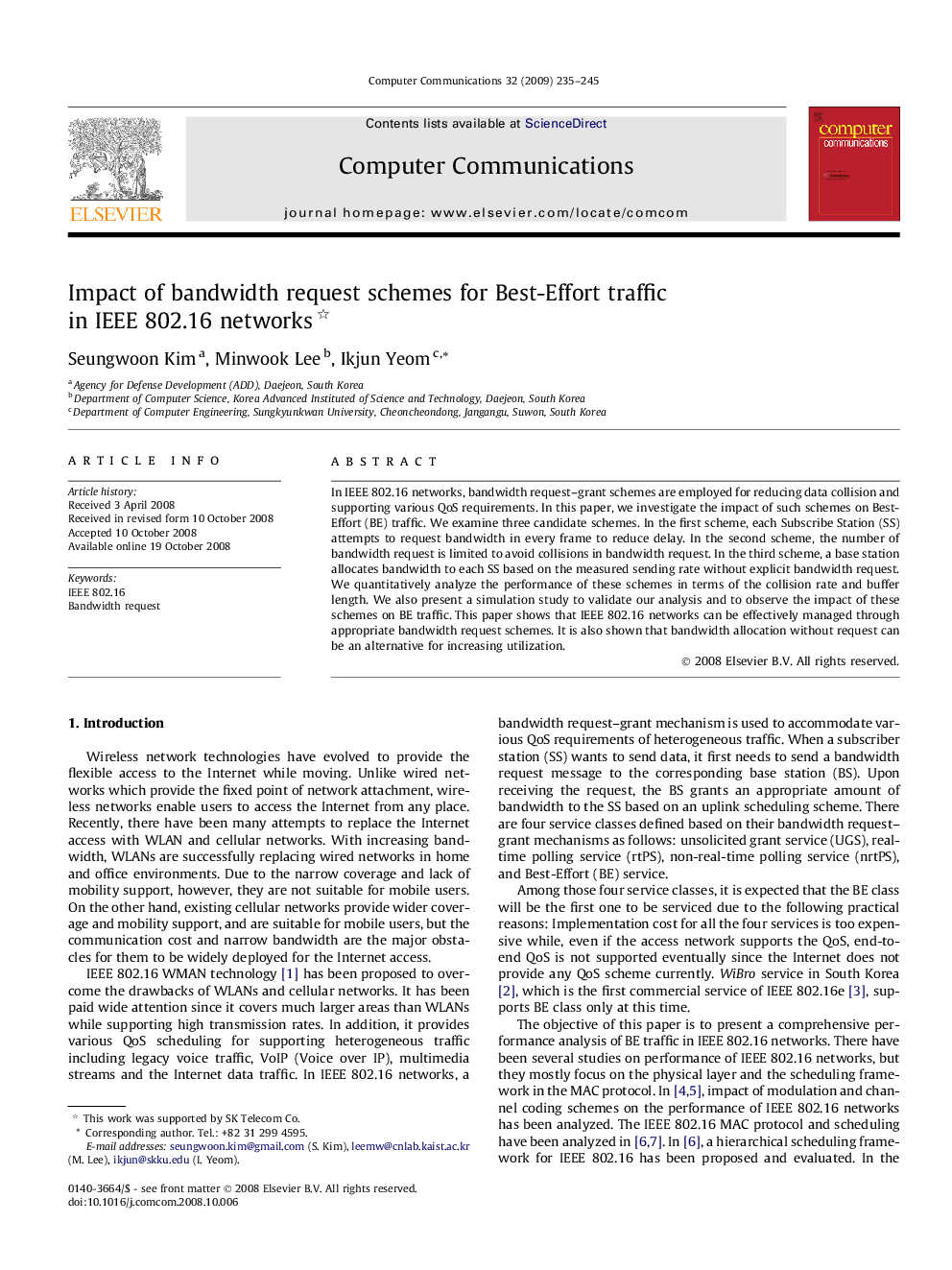| Article ID | Journal | Published Year | Pages | File Type |
|---|---|---|---|---|
| 449293 | Computer Communications | 2009 | 11 Pages |
In IEEE 802.16 networks, bandwidth request–grant schemes are employed for reducing data collision and supporting various QoS requirements. In this paper, we investigate the impact of such schemes on Best-Effort (BE) traffic. We examine three candidate schemes. In the first scheme, each Subscribe Station (SS) attempts to request bandwidth in every frame to reduce delay. In the second scheme, the number of bandwidth request is limited to avoid collisions in bandwidth request. In the third scheme, a base station allocates bandwidth to each SS based on the measured sending rate without explicit bandwidth request. We quantitatively analyze the performance of these schemes in terms of the collision rate and buffer length. We also present a simulation study to validate our analysis and to observe the impact of these schemes on BE traffic. This paper shows that IEEE 802.16 networks can be effectively managed through appropriate bandwidth request schemes. It is also shown that bandwidth allocation without request can be an alternative for increasing utilization.
